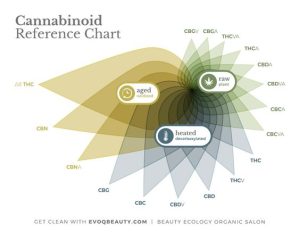Public health institutions worldwide have identified antibiotic resistance in bacteria as one of the most severe challenges humanity faces. Despite this, scientists have not discovered a new class of antibiotics in over 30 years. Now, researchers have uncovered the hidden antibiotic potential of a non-psychoactive cannabis compound called cannabigerol (CBG). This compound proves instrumental in controlling Methicillin-resistant Staphylococcus aureus (MRSA) infections in mice.
For centuries, the cannabis plant has been utilized in traditional medicine. Only recently have scientists begun exploring different cannabis compounds for their potential in treating various ailments. Early studies suggested that certain cannabinoids could slow the growth of Gram-positive bacteria, such as Staphylococcus aureus, but not Gram-negative bacteria like Escherichia coli.

Researchers tested the antibacterial activity of 18 cannabis-derived molecules, including cannabidiol (CBD), tetrahydrocannabinol (THC), and CBG, against MRSA. They also evaluated these substances’ ability to prevent biofilm formation on surfaces and to kill antibiotic-resistant dormant “persistent” MRSA. CBG demonstrated the best performance in these tests, prompting further investigation.
In treating MRSA-infected mice with CBG, the compound proved as effective as vancomycin, a potent antibiotic. Researchers found that CBG targets the cell membrane of Gram-positive bacteria, rendering it ineffective against Gram-negative bacteria that possess an additional outer membrane. However, they discovered that by combining CBG with another drug that punctures holes in this outer membrane, CBG could penetrate the inner membrane and kill Gram-negative bacteria.
This groundbreaking research unveils a potential new avenue in the fight against antibiotic-resistant bacteria, with CBG showing promise as a non-psychoactive and effective antibiotic. Further studies and clinical trials will be essential to explore the full spectrum of CBG’s therapeutic capabilities and its potential contribution to combating bacterial infections in humans.
